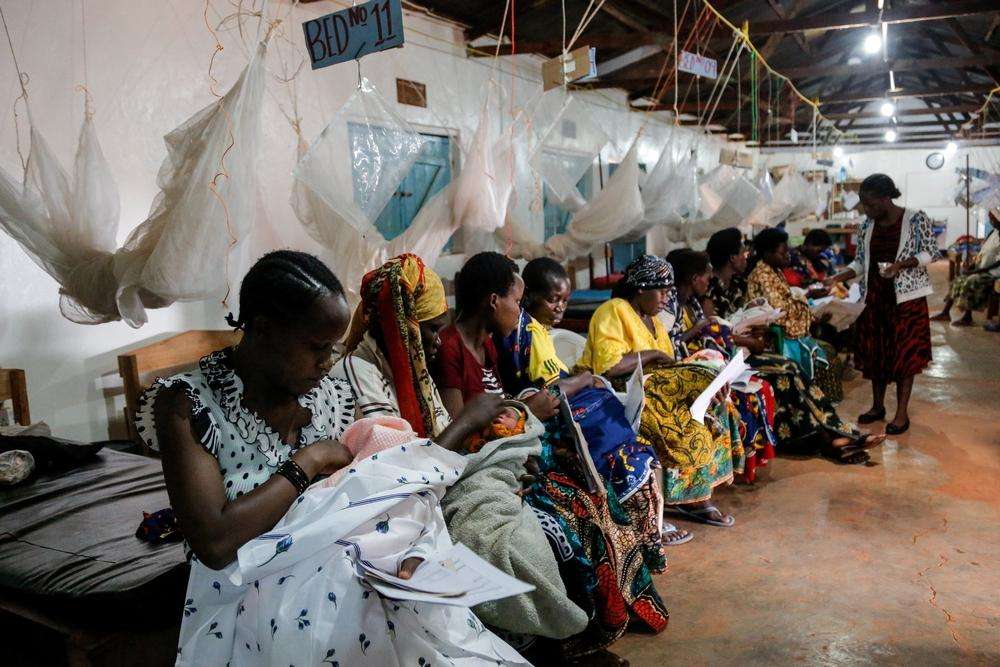DAR ES SALAAM/GENEVA/NEW YORK, MARCH 1, 2017—Much greater efforts are needed to meet the humanitarian needs of Burundian refugees arriving by the thousands each month in crowded camps in Tanzania, the international medical humanitarian organization Doctors Without Borders/Médecins Sans Frontières (MSF) said today.
Nearly 19,000 people crossed into Tanzania in January—the most in a single month since May 2015, according to the United Nations refugee agency (UNHCR). About 290,000 refugees, more than three-quarters of whom are Burundian, are now crammed into three camps: Nyarugusu, Mtendeli, and Nduta. Already considered full in November, Nduta alone now holds more than 117,000 people—more than double its intended capacity—with hundreds of people arriving per day.
"With the three camps at full capacity and the flow of refugees not slowing, it is more and more urgent that a site for a fourth camp is identified and immediately established," said David Nash, MSF head of mission in Tanzania. "MSF has repeatedly called for this, but we are still not seeing concrete action."
In Nduta, where MSF is the main health provider, medical teams have seen a fourfold increase in the number of outpatient consultations. Malaria is the major health concern, and with the rainy season putting additional pressure on already overcrowded and unsanitary living conditions, there has been an explosion in cases. In January alone, MSF treated nearly 17,000 people for the malaria in Nduta and Nyarugusu. Diarrhea, respiratory tract infections, and skin conditions are also very common.
"Although agencies have begun to scale up assistance, the humanitarian response still does not match the rate of new arrivals," Nash said. "With insufficient shelter available, people are forced to spend more time in overcrowded communal shelters, where the risk of disease is much higher."
Sexual and reproductive health services are also in high demand in Nduta. Deliveries more than doubled during the last four months of 2016, and more than 400 babies were born in January 2017. Young children, pregnant women, and new mothers are particularly vulnerable to illness.
"There is a real fear that we may witness a health crisis if crowding gets worse and facilities are unable to meet the needs of people arriving," Nash said.
A recent decision by the Tanzanian government to stop granting prima facie refugee status to Burundians arriving in the country may also have implications for efforts to meet shelter, medical, and hygiene needs.
From the time the emergency began in April 2015, all Burundians arriving into Tanzania have been automatically granted refugee status. The recent decision means new arrivals will now have their refugee status determined individually, a process that may affect the humanitarian assistance that can be made available to them.
"Tanzania in recent years has generously hosted hundreds of thousands of refugees fleeing acute crises," Nash said. "International donors need to drastically increase their support. At the same time, the Tanzanian government must ensure it continues to respect refugee conventions and provides safe refuge for as long as people continue to flee. We again call for a rapid scale-up of aid to support the ever-increasing number of refugees entering Tanzania."
MSF has worked in Tanzania since May 2015. Currently, teams are working in Nyarugusu and Nduta camps. In Nyarugusu, MSF runs a 40-bed stabilization unit and three malaria clinics and provides mental health support. In Nduta, MSF is the major medical provider, running a 120-bed hospital and five health posts, and providing mental health support.




